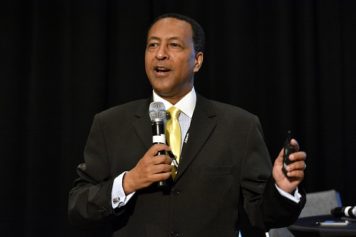The wife of a cow herder recently switched on a light in her home for the first time ever, all thanks to a mobile phone.
Rokoine Tipanoi used the mobile phone in November to make a tiny down payment on a solar panel on her roof that provides electricity to her home. The payment was so small, in fact, that it’s cheaper to light her room now than it was to fill her old kerosene lantern.
Hundreds of thousands of such payments have allowed a Kenyan startup called M-Kopa LLC to build a business, one light bulb at a time.
“Now I have two lights, instead of one lamp. And I can charge my phone,” Ms. Tipanoi said of the new solar panel she snagged for a $30 deposit and daily fees of 40 Kenyan shillings, or less than 50 cents.
Across Kenya, mobile money is breathing life into micro business. Companies whose business models are based on mobile payments have shown how targeting some of the world’s poorest customers can not only pay but also be a promising way to grow. Small digital transactions are fueling new ventures, from insurance to loans, and pointing the way for other companies that want to reach the global poor, or the “bottom billion.”
“The mobile phone made the bottom of the pyramid viable as a business opportunity,” said Aly Khan Satchu, who runs a Kenyan investment firm. “If you’re taking a dollar off a million people, that’s a reasonable revenue stream, but it wasn’t possible to do that without the mobile phone.”
Another company called Kopo Kopo Inc., founded by two Americans, sells a product that allows mom-and-pop retailers to accept digital payments, and then to computerize their bookkeeping. A Kenyan-American venture called M-Changa Ltd. gives extended families a phone app to raise money for weddings and funerals—the type of events that draw support from an entire Kenyan village. And Kenya’s UAP Group insurance company insures small farmers, and compensates crop failures via mobile payments based on satellite weather data, sometimes before the crops fail.
Mobile money users “load” cash onto their phones by handing it to agents stationed at grocery stores, gas stations and shopping centers. They receive a text message with their balance and then they can send money to another person or to a company via text message. A bank account isn’t required.
Read more from the Wall Street Journal


